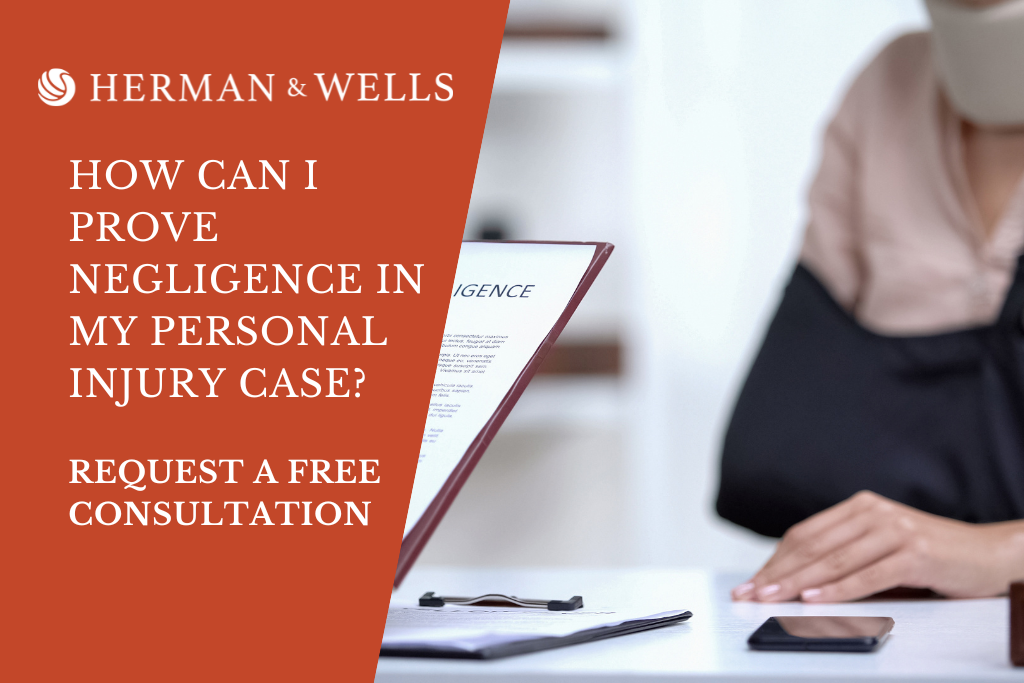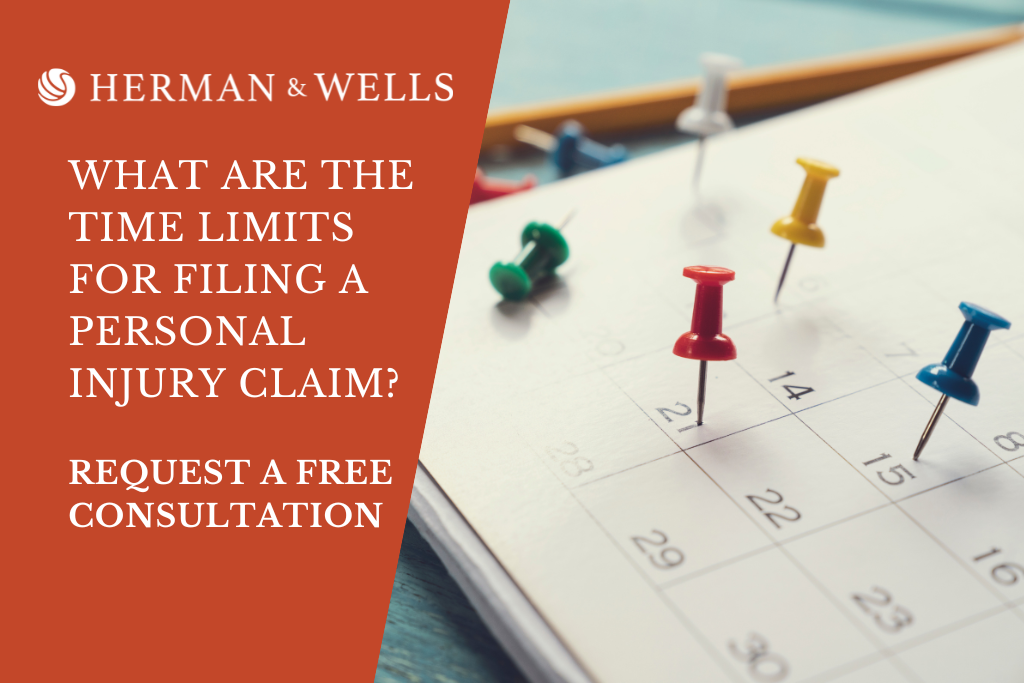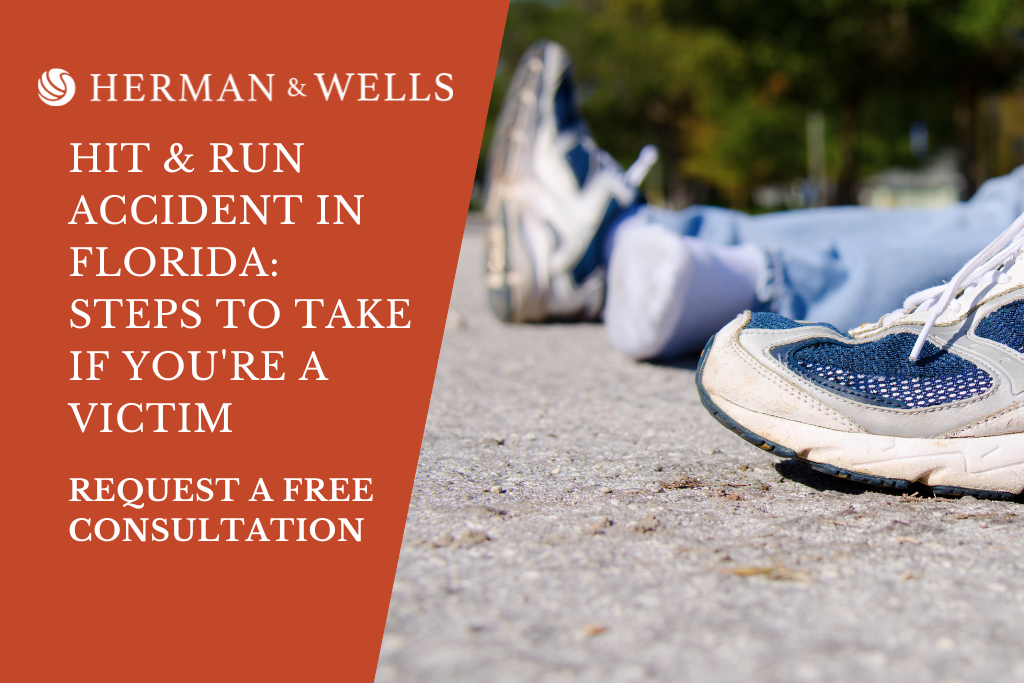When harm occurs due to someone else’s negligence, establishing fault is crucial yet complex, requiring an understanding of legal principles, compelling evidence, and precision. That’s where the personal injury lawyers of Herman & Wells come in – with experience and expertise, they can help ensure the responsible party is held accountable for your suffering.
If you’ve been a victim of personal injury in Florida, don’t hesitate to call (727) 821-3195 today and take the first step towards obtaining the maximum compensation you deserve.

The Cliff Notes: Key Takeaways From This Post
- 1Understanding Negligence: Negligence is a legal term for failing to meet the care level of an ordinary prudent person. In a personal injury claim, proving the other party’s negligence is crucial.
- 2Proving Negligence: Establishing negligence in a personal injury case involves showing duty of care, breach, causation, and damages. Without proving these, a claim won’t succeed.
- 3Duty of Care: It’s the legal obligation to ensure safety and avoid harm to others, a foundational element in proving negligence.
- 4Breach of Duty: This occurs when the defendant fails their duty of care, leading to injury.
- 5Causation: Proving a direct link between breach of duty and injuries sustained is essential.
- 6Damages: Demonstrating actual damages like physical injury or financial loss due to negligence is necessary.
- 7The Role of a Personal Injury Lawyer: Working with a skilled personal injury lawyer can significantly impact a negligence claim, guiding through legal complexities for protecting rights and maximizing compensation.
- 8Contact our personal injury attorneys at Herman & Wells at (727) 821-3195.
Understanding Negligence In Florida Personal Injury Claims
Understanding negligence is key to navigating personal injury claims. As per the Legal Information Institute, negligence is characterized by a failure to act with the caution expected of a reasonably prudent person under similar circumstances, leading to harm.
If a person’s reckless or wrongful behavior led to an accident or injury causing you financial losses and distress, they may be held legally liable through a negligence-based personal injury claim or lawsuit. Thus, a better understanding of negligence can help protect your rights and secure compensation for damages incurred.
Key Factors Of Negligence In Personal Injury Cases
Duty Of Care
Duty of care is a legal obligation requiring individuals to avoid causing harm to others. This concept is universally applicable, for example, all drivers are required to exercise care on the road, obey traffic regulations, and abstain from harmful behaviors to ensure the safety of others.
Breach Of Duty
The second key factor is proving that the liable party has breached their duty of care. In a car accident situation, this may involve evidence of reckless behaviors such as running a red light, speeding, driving under the influence, or disregarding the state’s traffic laws, as seen in Florida.
Causation
Causation refers to making a direct connection between the offender’s actions and the victim’s injuries. In a vehicular accident, it would be necessary to demonstrate how a driver’s decision to run a red light led to a collision which subsequently resulted in specific injuries, such as a broken leg or a concussion.
Damages
Lastly, for a successful claim, the victim must show that the injury led to tangible damages. These can range from financial costs such as medical bills and lost wages, to non-economic impacts like pain and suffering.
Steps to Proving Negligence In Your Florida Personal Injury Claim
Gathering Evidence In Florida
Gathering evidence is the fundamental initial step in establishing negligence in your personal injury claim. In the context of Florida, this process may involve collecting photographic or video evidence of the scene, obtaining witness statements, and securing a copy of the police report.
Documenting Your Injuries And Damages
Documenting your injuries and damages meticulously is crucial for substantiating your claim. This involves keeping detailed records of medical treatments, diagnoses, and expenses, as well as an account of any lost wages or diminished earning capacity due to the injury. It’s imperative to compile this evidence systematically to build a strong foundation for your personal injury case in Florida.
The Role Of Eyewitnesses In Florida Cases
Eyewitness testimony can be a critical component in reinforcing your negligence claim in Florida. These individuals can provide objective accounts of the accident, offering insights that corroborate your version of events. In a legal context, the credibility and details from eyewitnesses can significantly impact the strength of your case.
Utilizing Expert Testimonies In Florida
Utilizing expert testimonies in Florida personal injury cases can decisively bolster your claim. Experts, such as accident reconstruction specialists or medical professionals, provide an authoritative analysis that lends technical insights into the cause and extent of injuries. Their evaluations are crucial in establishing negligence and can be pivotal in achieving a favorable outcome in court.
Common Pitfalls In Florida Personal Injury Claims
Challenges With Florida Insurance Companies
Dealing with Florida insurance companies can be a rigorous and often complicated process. These entities are skilled at minimizing payouts, employing strategies that challenge the claims of policyholders. It’s essential to approach these interactions equipped with comprehensive documentation and the best legal representation.
Understanding The New Statute Of Limitations In Florida
It’s crucial to be aware of the statute of limitations in Florida, which limits the amount of time you have to file a personal injury claim. As of 2023, the state has passed a new law that reduces the time limit for filing certain types of cases from four years to two years.
This means that it’s more important than ever to act quickly and seek legal representation as soon as possible after an accident. Failure to file within the statute of limitations can result in a dismissal of your case, regardless of the strength of your claim.
Why You Need A Florida Personal Injury Lawyer
Although you’re not obligated to hire an attorney for your insurance claim or lawsuit, teaming up with a seasoned personal injury lawyer can significantly boost your chances of success. Our legal team, boasting a collective 30 years of experience, excels at constructing a strong case by establishing negligence and advocating for your right to compensation.
We take care of the details, handling claim submissions, communications, and paperwork, allowing you to prioritize your well-being and family. From evaluating the true extent of your losses to negotiating the best possible settlement, we guide you through each stage to achieve the most favorable outcome.
Contact Herman & Wells
In Florida’s personal injury cases, understanding negligence and its four key elements can significantly impact your claim process, lawsuit outcome, and potential damages recovery. With the complexities of the State’s specific laws, obtaining proper legal guidance can make a significant difference.
At Herman & Wells, we are committed to advocating for you – we will work ceaselessly to recover your losses and hold at-fault parties accountable. Don’t navigate these complexities alone – contact us at (727) 821-3195 and benefit from a complimentary consultation with a seasoned Florida attorney.






